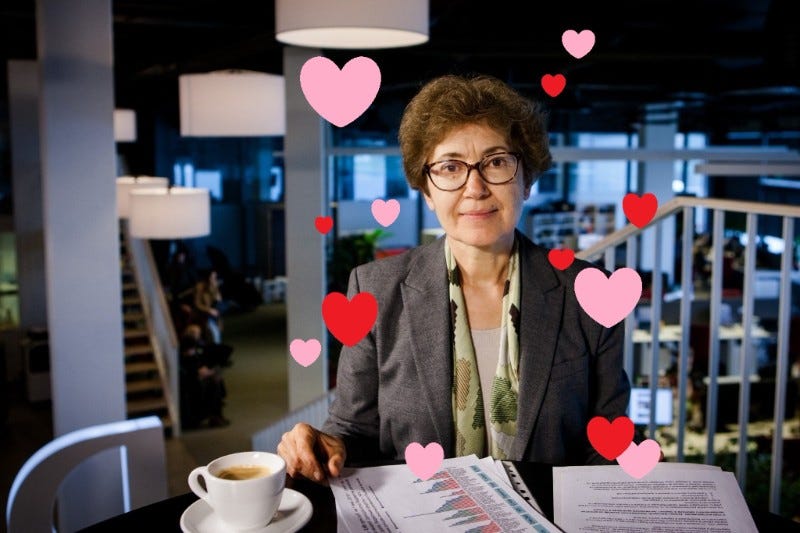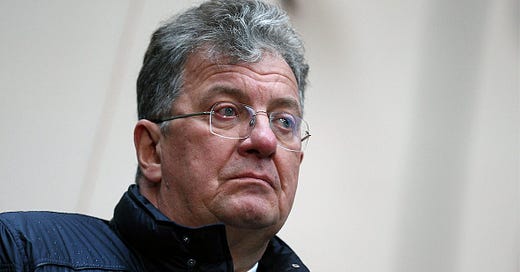Yacht to Know Him

Markets
USD to RUB: 57.2366 (.70%)
Brent Crude: 62.80 (.13%)
MICEX: 2255.02 (.20%)
RTS: 1234.60 (.63%)
Top Story
In wake of Syria disaster, PMC regulation advances
On the heels of an incident involving U.S. forces in Syria that may have resulted in the deaths of over 200 Russian private military contractors (PMCs), a Duma push to regulate the industry such has gained new urgency. According to Retired General and Duma Defense Committee Chairman Vladimir Shamanov, the chamber will advance a bill regulating PMCs, though the details remain scarce. Per Shamanov, "the state must be directly involved in issues related to the life and health of our citizens." Russian officials have remained mum on the incident, denying losses while also negating involvement by Russian military forces. Several observers note that the incident, which occurred in the oil-rich Deir el-Zour province, may have been the result of a push to secure hydrocarbon assets there. Per Ruslan Leviev, founder of the Conflict Intelligence Team (CIT), it is plausible that Russia's military did not know of the operation, as coordination with PMCs in the area poor at best.
BIGGER PICTURE: Russia has used PMCs to conduct an off-hand foreign policy of sorts, paying more but also masking losses. That works with the kind of casualties that come with a low-intensity conflict. But what happens when numerous losses get publicized at once ... the week after a fighter is downed... a month after a Putin personally stopped in Syria to declare victory? That's Not great PR, to say the least. See our previous coverage on Russian PMCs here and here.

Snapshot: Natalia Zubarevich, will you be our valentine?
When it comes to Russia's regions, their economies, and federalism issues, there is no expert as thoroughly awesome as Natalia Zubarevich. We wanted to say that we'd give all four Russias just to see her happy. The link on top is to a recent interview she did with Novaya Gazeta. And a happy Valentine's Day to all.
Word on the Street with Anna Nadibaidze
This week in Telegram gossip...
Apparently, Defense Minister Sergei Shoygu was hoping to receive the title of Marshal of the Russian Federation (the highest military rank in Russia) on February 23, the Day of the Defender of the Fatherland. That’s not happening due to recent failures in Syria, especially after claiming that ‘victory’ was declared.
On the interesting design of the electoral ballot, on which Putin's biography is notably short: Central Election Commission chair Ella Pamfilova explained that the information is from the candidates themselves. Some wonder why include anything about Putin, in that case? Everyone knows him anyway!
Some note that Navalny’s video about PM Dmitri Medvedev was not blocked, and it took a while for business magnate Usmanov to take him to court. But with oligarch Oleg Deripaska, the response was immediate. Does this mean that Deputy PM Prikhodko is more powerful than Medvedev, and Deripaska is more influential than Usmanov?
Chairman of the State Duma Vyacheslav Volodin criticized Economic Development Minister Maxim Oreshkin and even threatened him with prosecution for not having complied with his own Ministry’s regulations. It’s the first time this has happened, and it clearly shows that Oreshkin is losing his privileged status, writes @russica2.
The ‘Cleanup-05’ (05 being Dagestan’s region code) anti-corruption campaign is a typical pre-election tactic used by the Administration to boost Putin’s popularity. However, the administration doesn’t have a clear strategy, so its hard to say what to expect in other regions (particularly Tatarstan and Chechnya).
What They're Saying
"We cannot exclude that Russian citizens may be located in Syria. They have nothing to do with the armed forces. That is all that can be stated."
- Kremlin Spokesman Dmitri Peskov, press conference
Macro
Credit rating upgrade could net Russia $2 billion
Per Societe Generale SA, Russian Eurobonds may see over $2 billion in inflows should the country win a long-coveted sovereign rating upgrade. Investors are bullish, with S&P set to review Russia's rating on February 23rd. With the country's foreign debt still rated at investment grade by Fitch, one more upgrade would allow Russian debt to be re-included in global benchmarks. Both Moody's and S&P had slashed Russia's score to 'junk' after the annexation of Crimea, subsequent sanctions, and crash in oil prices. Per Societe Generale's Yuriy Tulinov, “Russian Eurobonds could potentially experience significant inflows. Funds following just one of the main global bond indexes could trigger $1 billion to $2 billion of inflows." Summarizes Jan Dehn at Ashmore Group, "there’s a considerable amount of passive money in exchange-traded funds and other passive strategies, which become automatic buyers if Russia returns to investment grade."
CONTEXT: With Putin eyeing ambitious social spending as part of his electoral platform, a ratings upgrade couldn't come at a better time. The big question on new spending is how to finance it: with lower borrowing costs (what a ratings upgrade would mean), that task could prove less of a headache.
CHART: Russia's Yield Premium Hits Record Low
Financial Sector
Banks face growing bad assets problem
According to sovereign credit ratings agency AKRA, a growing quantity of bad assets has emerged as the key threat to Russia's banking sector. Per Kirill Lukashuk, head of AKRA's financial institution ratings group, the volume of bad assets in Russia has more than doubled in the past three years, despite an ongoing cleanup of the sector. The figure stood at 1.6 trillion rubles ($30 billion) in 2014 and has now reached 3.8 trillion ($70 billion). He adds that the quality of the loans (considered assets in banking, to note) in question are such that they should be completely covered by reserves. Meanwhile, the total volume of non-performing loans (NPLs) stood at 6.5 trillion rubles ($110 billion) at the end of 2017. Comments Lukashuk, the situation in the market has led to a "long term structural crisis in which the majority of corporate borrowers will be worse off." Insufficient reserve creation by banks remains a problem as well, with many institutions hiding their holdings of bad assets.
INSIGHT: We see few signs of an imminent crisis in Russia - there was more worry late last summer. But should one break out, that is the sort of event that could mean real, actual trouble for Putin. The issues Russians have faced in recent years have tended to anger only specific segments of the population at a time. A banking crisis stands to effect everybody, all at once.
Data Point: Forecast of added growth from World Cup (Q2 & Q3)
.2%
Name in the News
Sergei Prikhodko

Despite being one of the most important officials in the Russian government, Deputy Prime Minister and Head of the Government Executive Office Sergei Prikhodko does not usually appear in the media. Well, until very recently. Born in Moscow, Prikhodko graduated from the Moscow State Institute of International Relations (MGIMO), one of the most prestigious Russian universities. He was one of few lucky students to complete an internship outside of the USSR, in Prague. He began his career in the Soviet embassy in Czechoslovakia, where he worked for most of the 1980s. Some have suggested he worked for the KGB and knew Putin there, but this is not confirmed. In the 1990s he came back to Moscow and continued to work for the Russian Foreign Ministry, dealing mainly with European affairs. He then joined President Yeltsin’s administration, thanks to his old friend Sergei Yastrzhembsky (their wives are sisters).
In 1997-98 Prikhodko was Yeltsin's aide for international affairs, and then became Deputy Chief of Staff of the Presidential Executive Office. In 1999, he gained the additional role of Head of Presidential Foreign Policy Directorate. After Yeltsin’s departure, he was once again appointed Presidential Aide for international affairs, serving under both Putin and Medvedev. During Putin’s third term, Prikhodko became First Deputy Chief of the Government Staff, and in 2013 he was named Deputy PM. All in all, Prikhodko managed to work with three different presidents, and on various policy issues. His influence on Russian foreign policy should not be underestimated: on some matters, his word is considered important than Foreign Minister Sergei Lavrov’s. The two, perhaps unsurprisingly, haven’t gotten on well, particularly when Prikhodko has dealt with foreign affairs. Today Prikhodko is informally considered to be the single most influential Deputy PM. Everything that lands on Medvedev’s desk has to go through Prikhodko first, which gives him immense leverage. Outside of politics, Prikhodko enjoys watching soccer, hunting and fishing. Little else is known about his life outside work.
Back in 2013, Prikhodko was the subject of an investigation by Alexei Navalny, who argued that the Deputy PM’s property did not correspond with his income. The Kremlin responded that Prikhodko paid for his property partly with the help of his wife’s income. Natalia Prikhodko used to own a yacht club, officially declared a non-profit organization, and today owns 90% of it, as well as other elite real estate. According to official declarations, she earns much more than her husband. However, anti-corruption experts agreed at the time that the family’s income was not enough to obtain all of what it owns. And now Prikhodko has reappeared in a recent Navalny investigation that alleges the Deputy PM spent time with oligarch Oleg Deripaska on a yacht in Norway. A source told Meduza that Prikhodko was already planning to leave his post; therefore it will be difficult to know exactly which impact (if any at all) this scandal will have on the Deputy PM’s career.
Chart: No surprises in the polls...
The latest VTsIOM data on the presidential race looks just like we'd expect. (Chart: RBK)

OPINION AND ANALYSIS
Leonid Bershidsky offers his view on the latest Syria incident. The Russians who perished there are called mercenaries, not heroes, he comments. But will the home front buy that? [ENG]
S&P Global Platts spoke with Energy Minister Alexander Novak about oil markets an OPEC. Per Novak, Moscow wants a long-term energy relationship with Saudi Arabia. [ENG]
Chris Miller argues that Putin is no economic genius: he's more of Brezhnev. For the Kremlin, per Miller, "why take the risk when the status quo is sustainable?" [ENG]
Aaron Schwartzbaum writes in his latest take for Axios that despite news about new meddling this fall, the gaze of Russia's leadership is turning inward. [ENG]
Don't miss the Moscow Times' new project Generation P, chronicling the lives of Russians who have grown up entirely under Putin. [ENG]
In a long read, Marc Trachtenberg explores what went wrong with CIA projections of the Soviet Union's economy. How did Western intelligence miss an impending collapse? [ENG]
With news of the aforementioned Syria incident trickling out, Znak spoke to the widow of a contractor who perished. "Where did they send them and why," she wonders. [RUS]
Founded in 1955, the Foreign Policy Research Institute i

s dedicated to bringing the insights of scholarship to bear on the foreign policy and national security challenges facing the United States. It seeks to educate the public, teach teachers, train students, and offer ideas to advance U.S. national interests based on a nonpartisan, geopolitical perspective that illuminates contemporary international affairs through the lens of history, geography, and culture.
To keep up with FPRI daily, be sure to follow us on Twitter @fprinews and Like us on Facebook — joining our more than 250,000 fans worldwide!
For more information, contact Eli Gilman at 215-732-3774, ext. 103, email fpri@fpri.org, or visit us at www.fpri.org.




